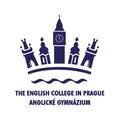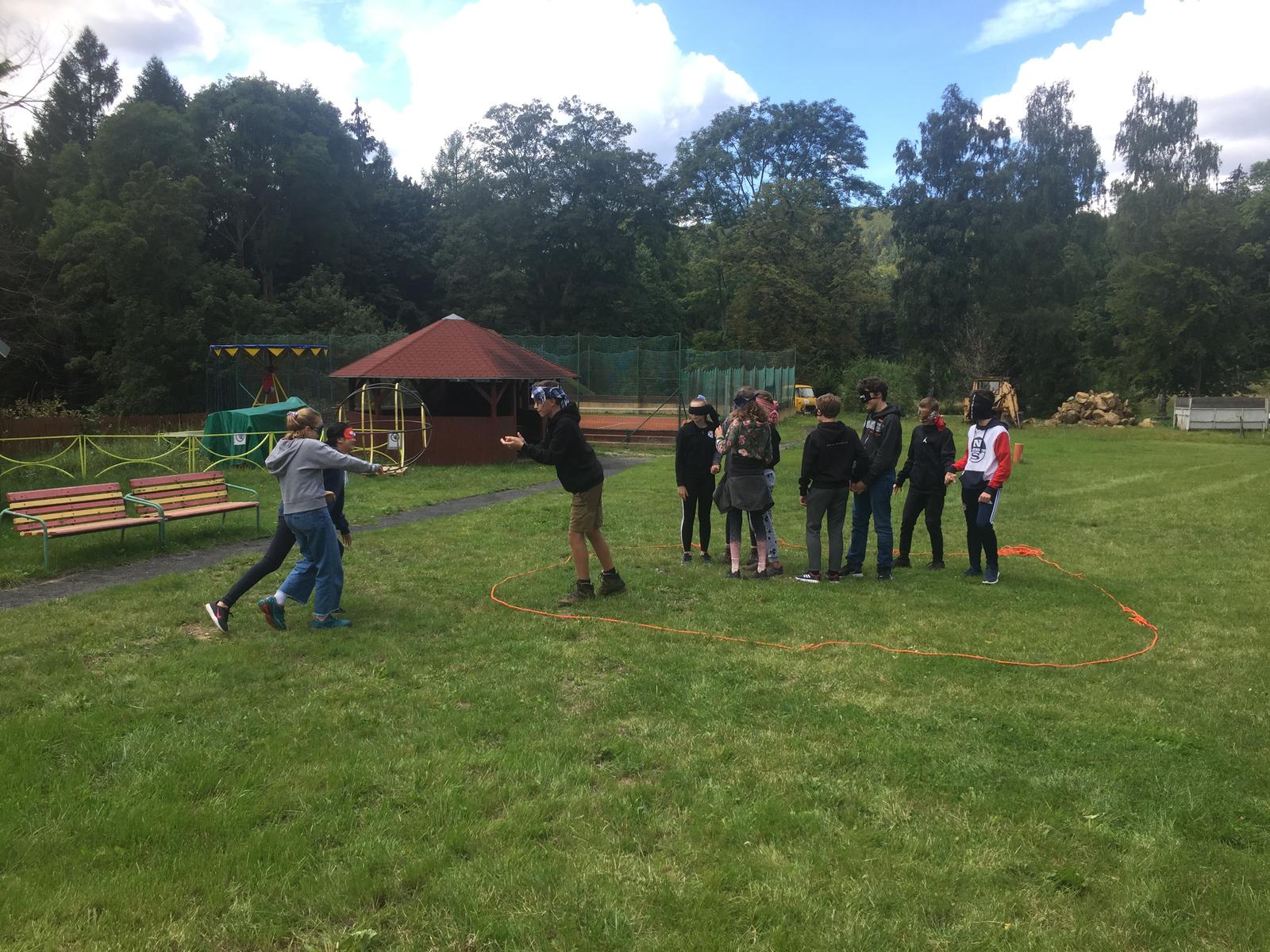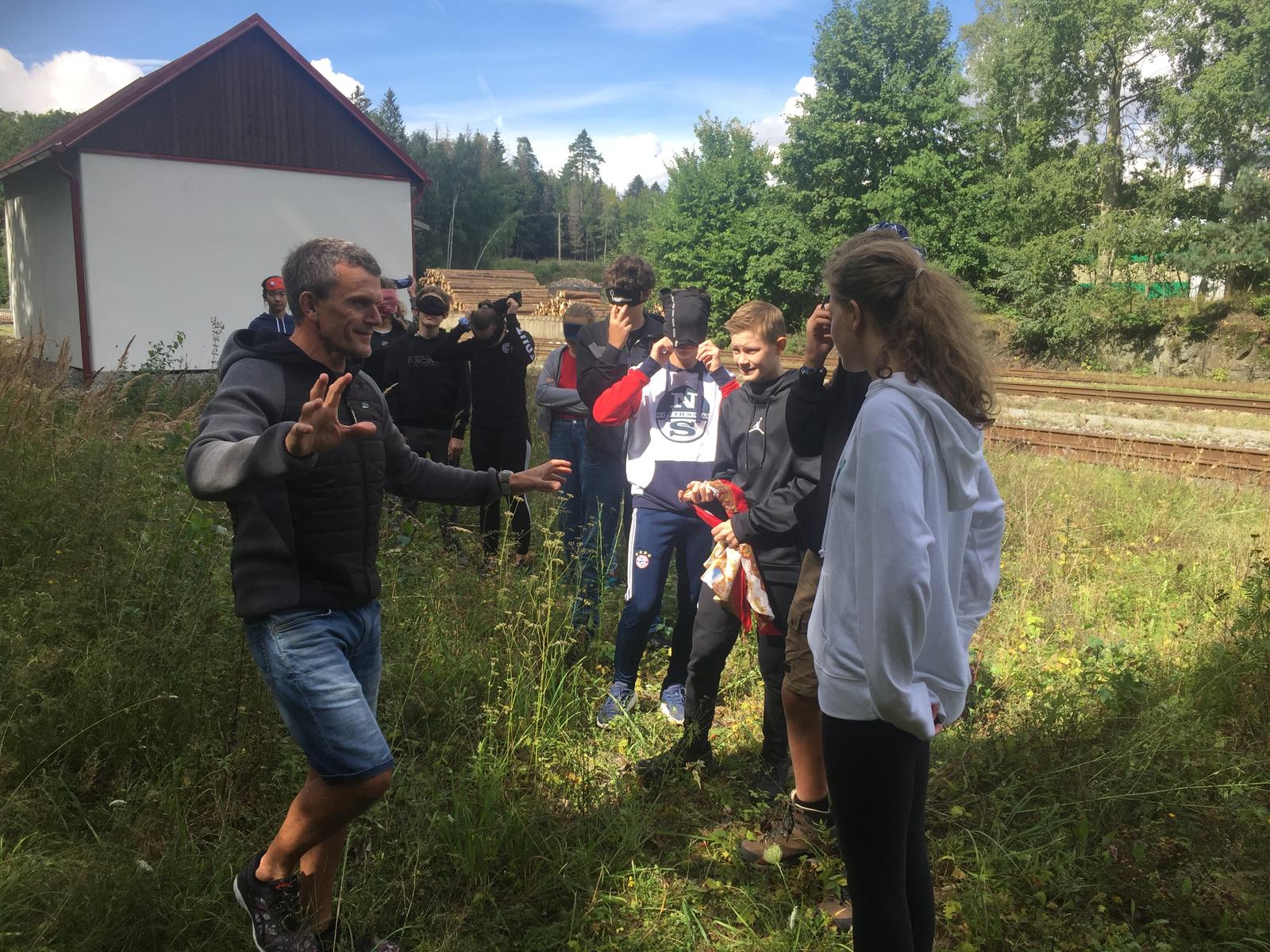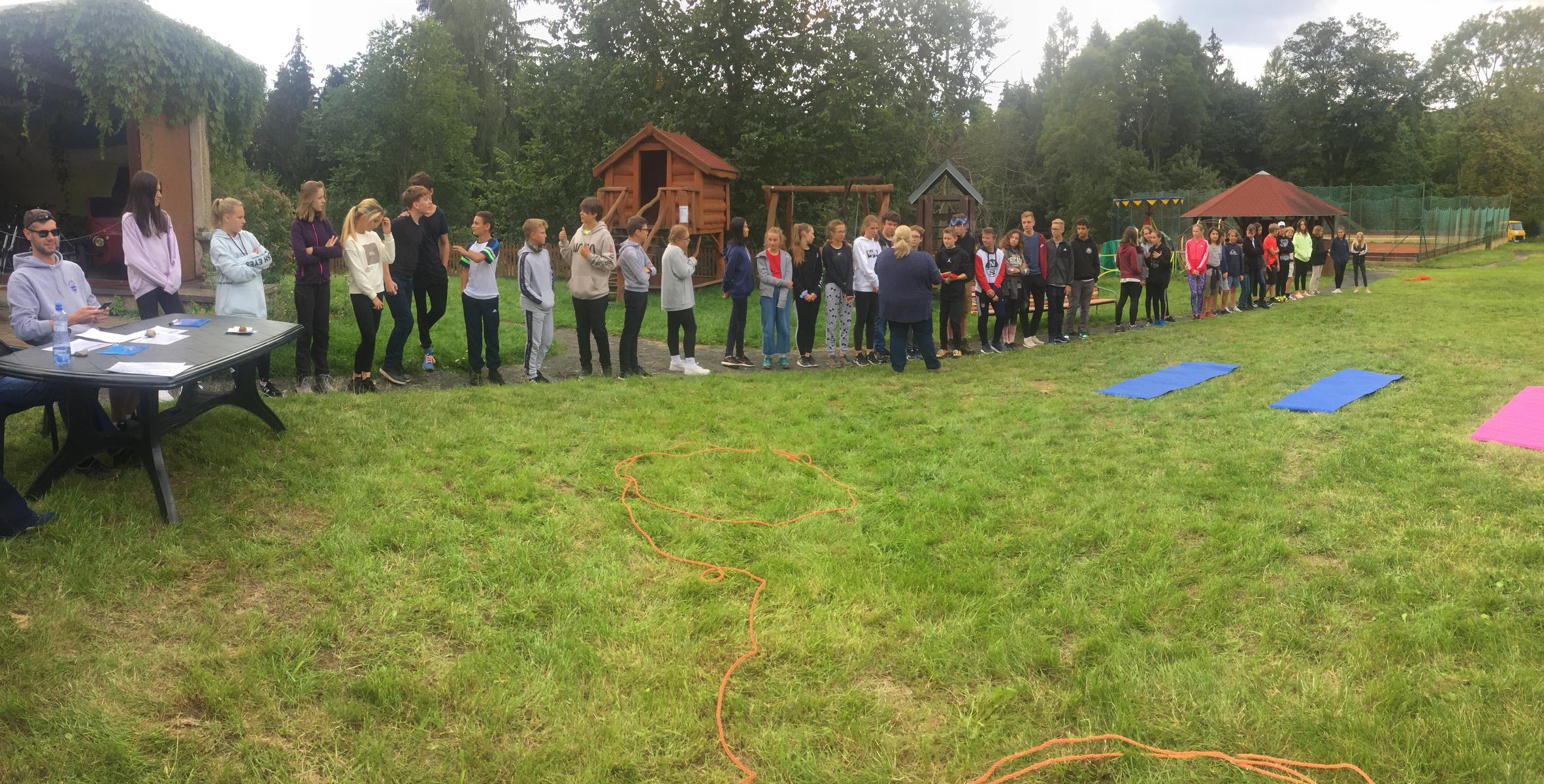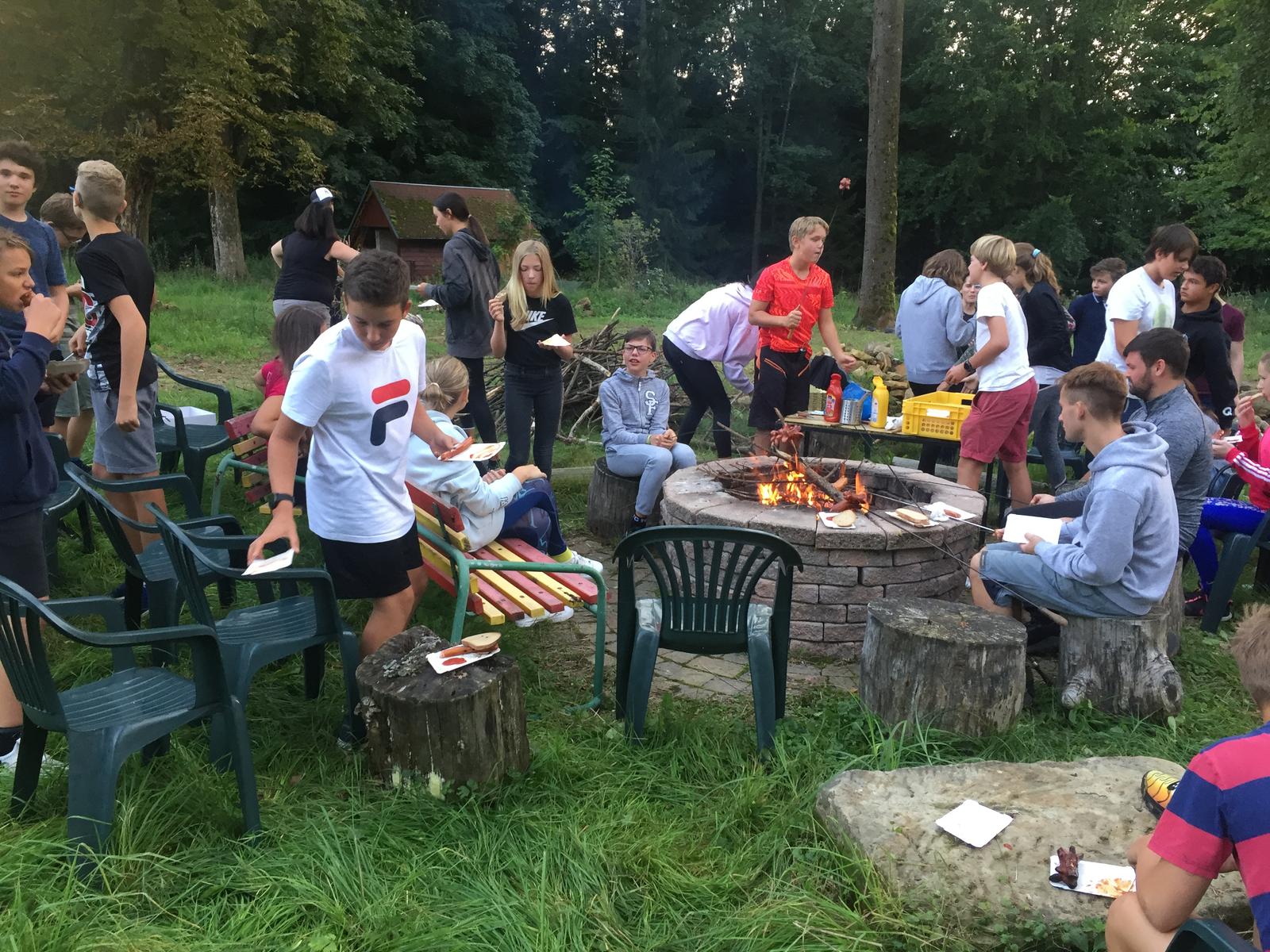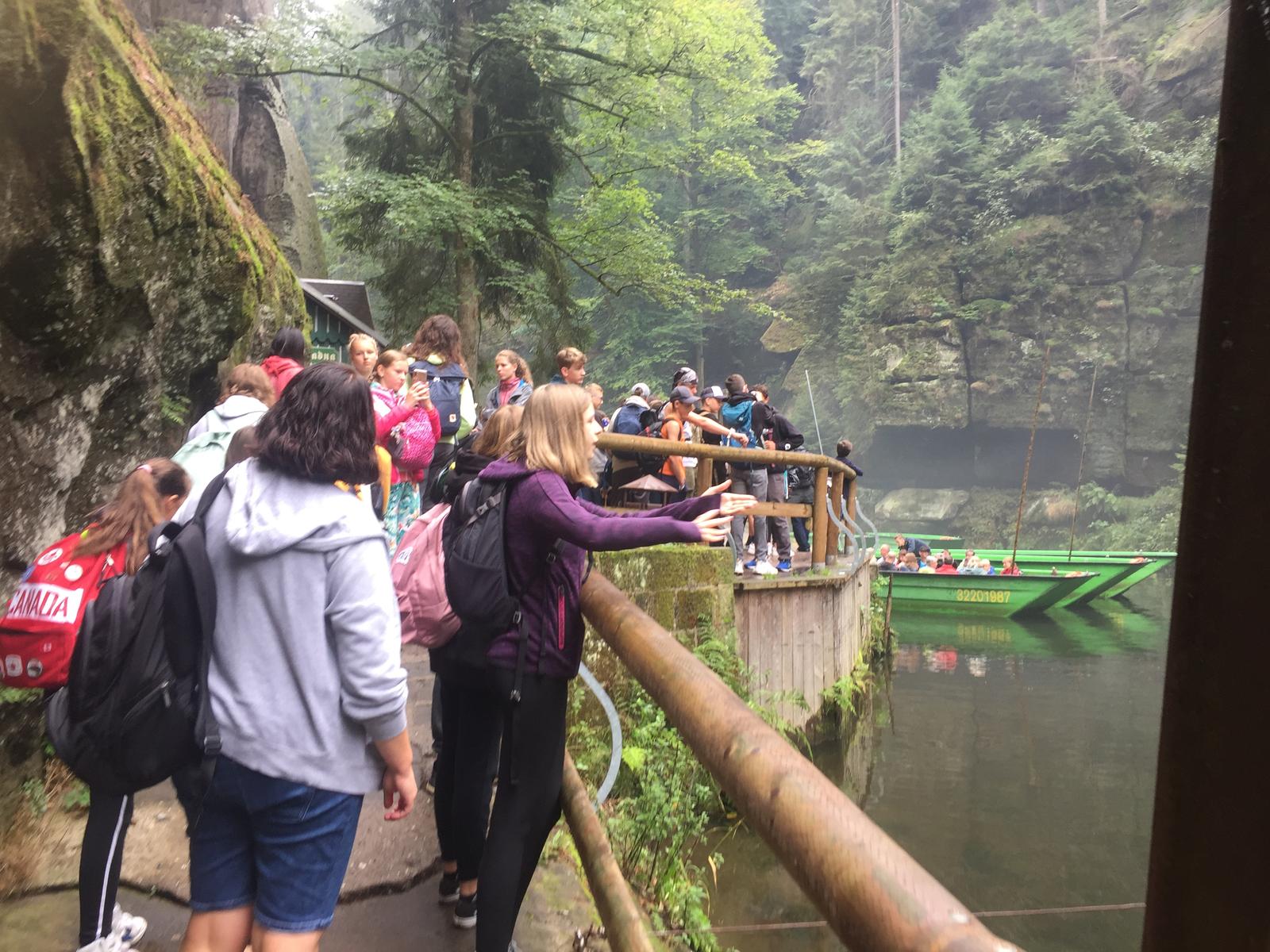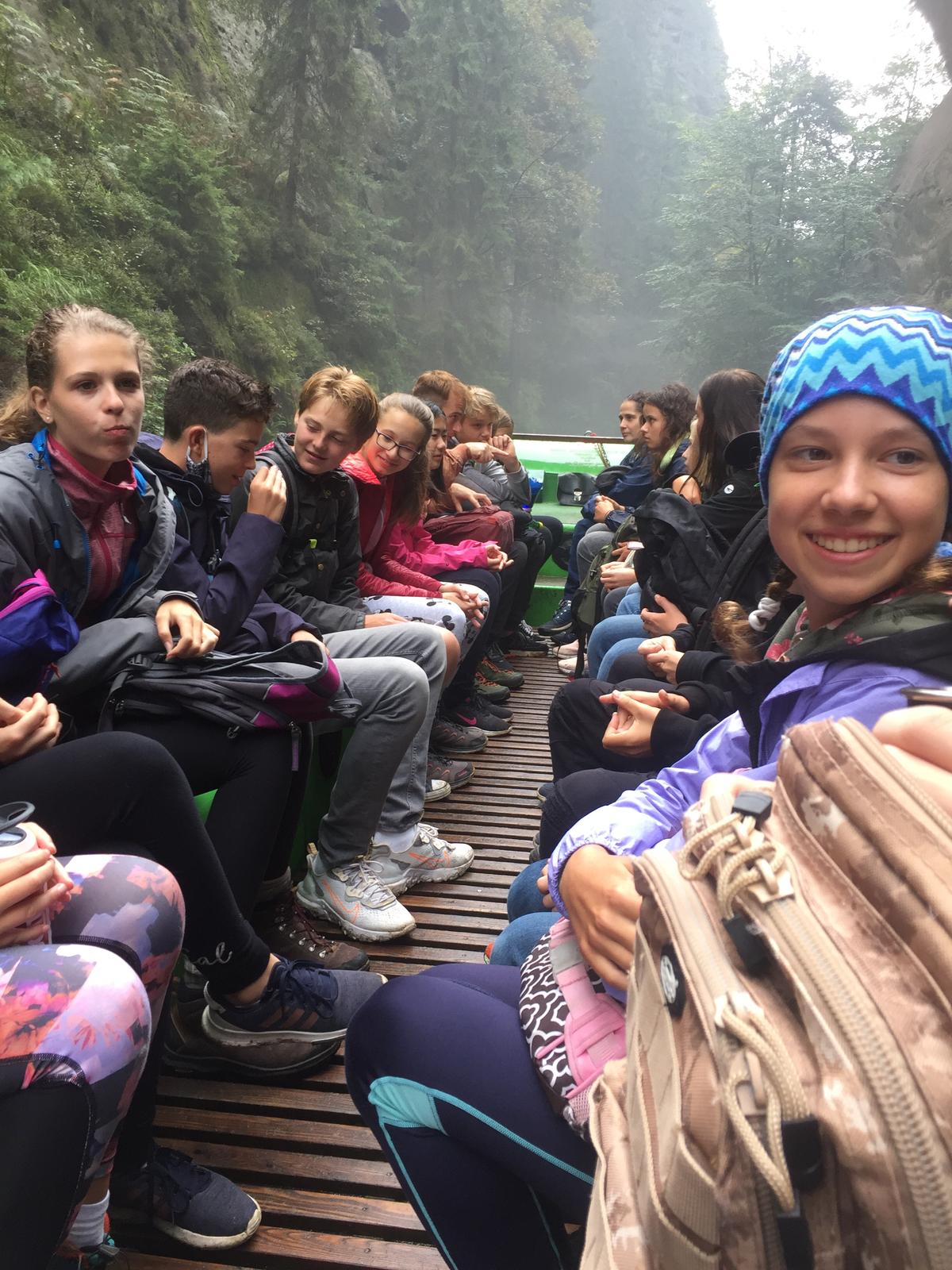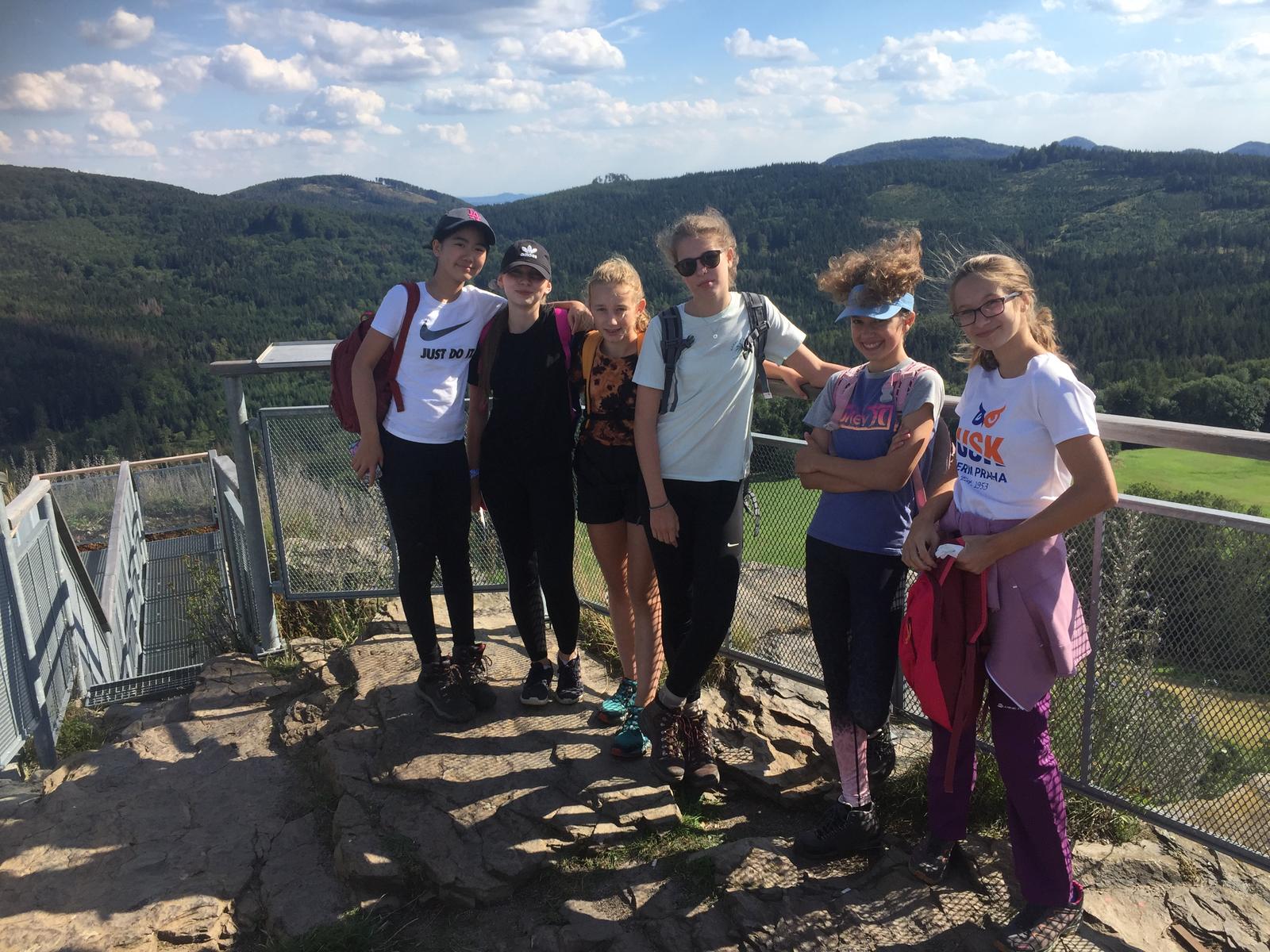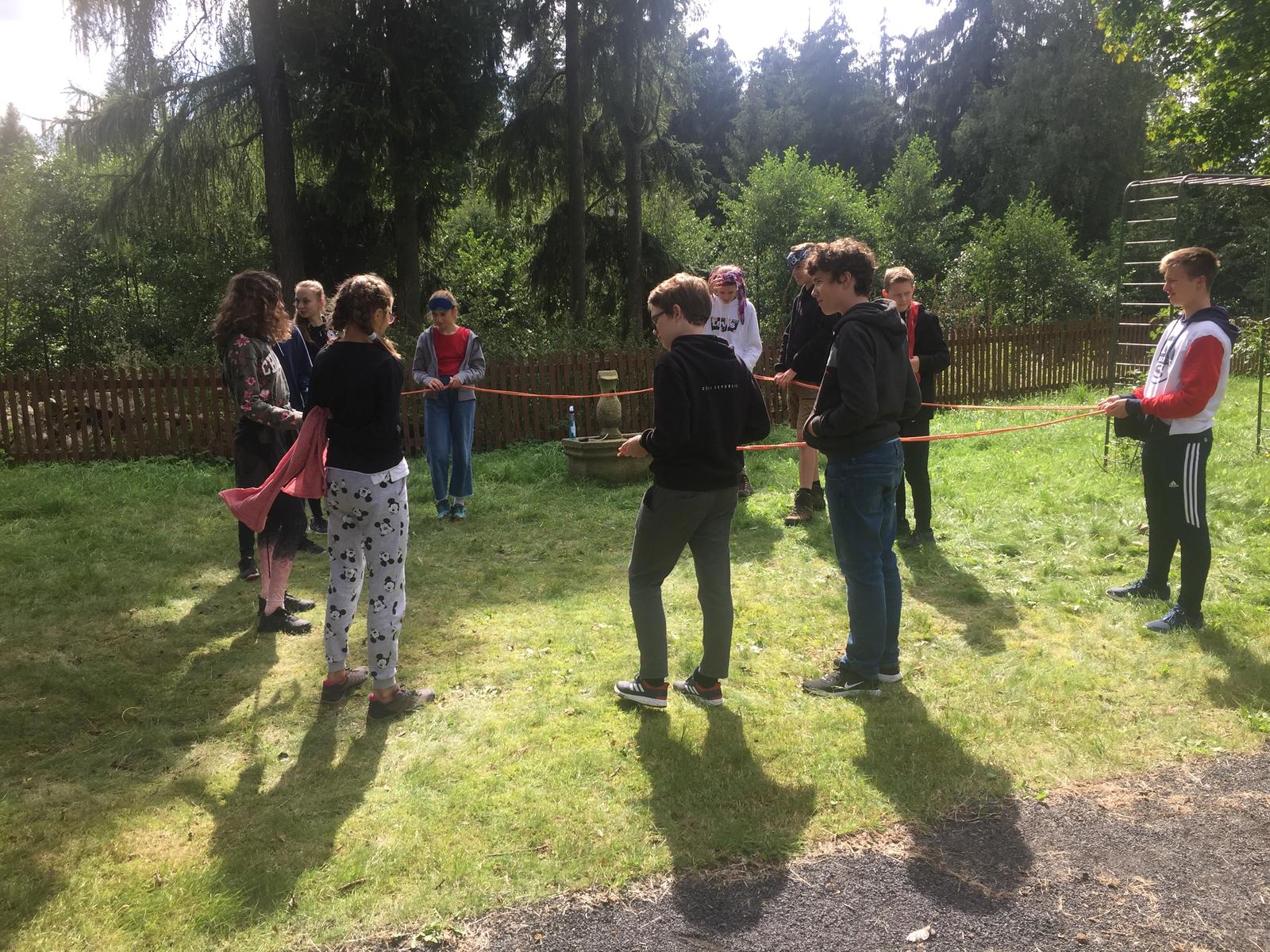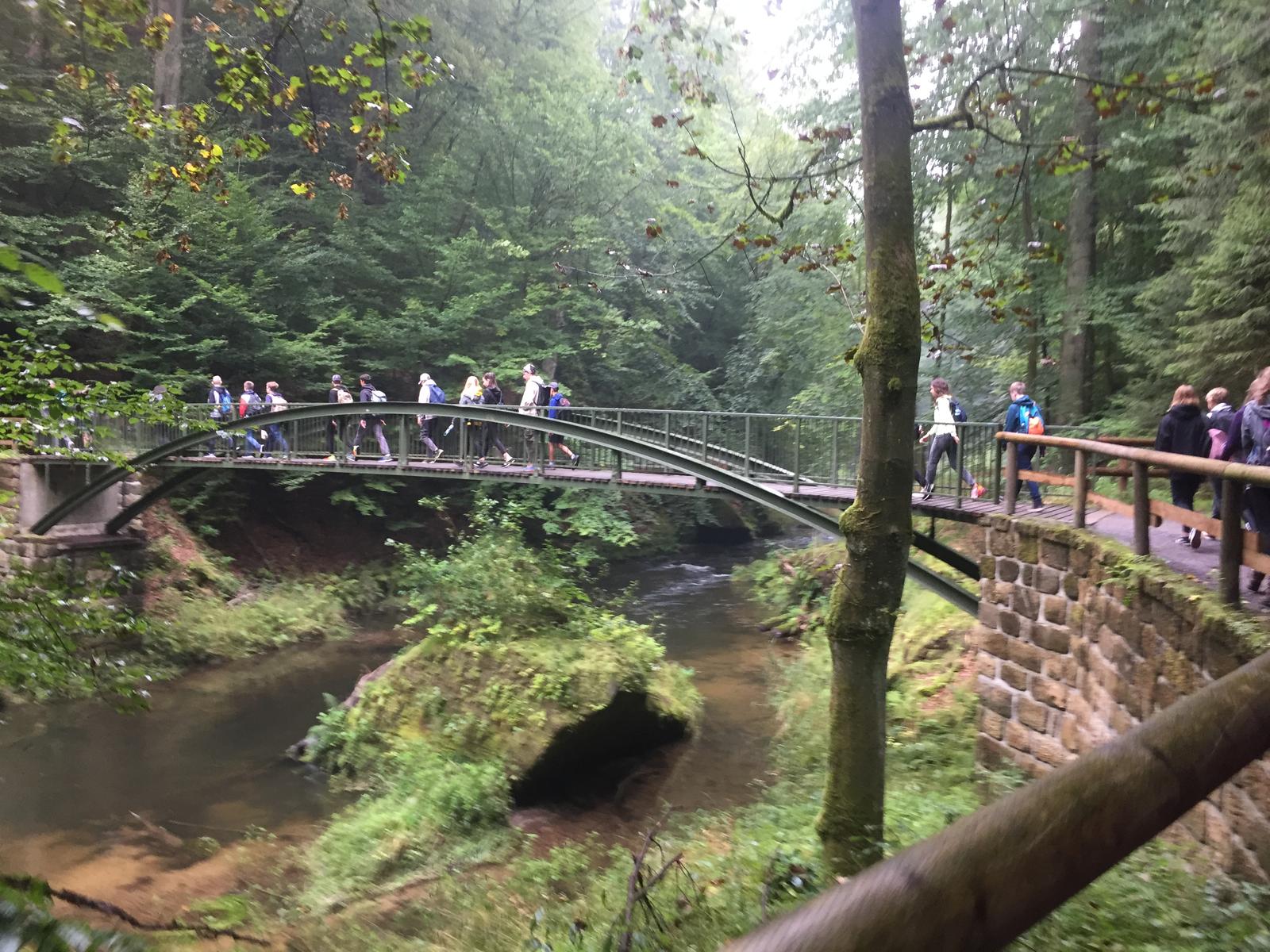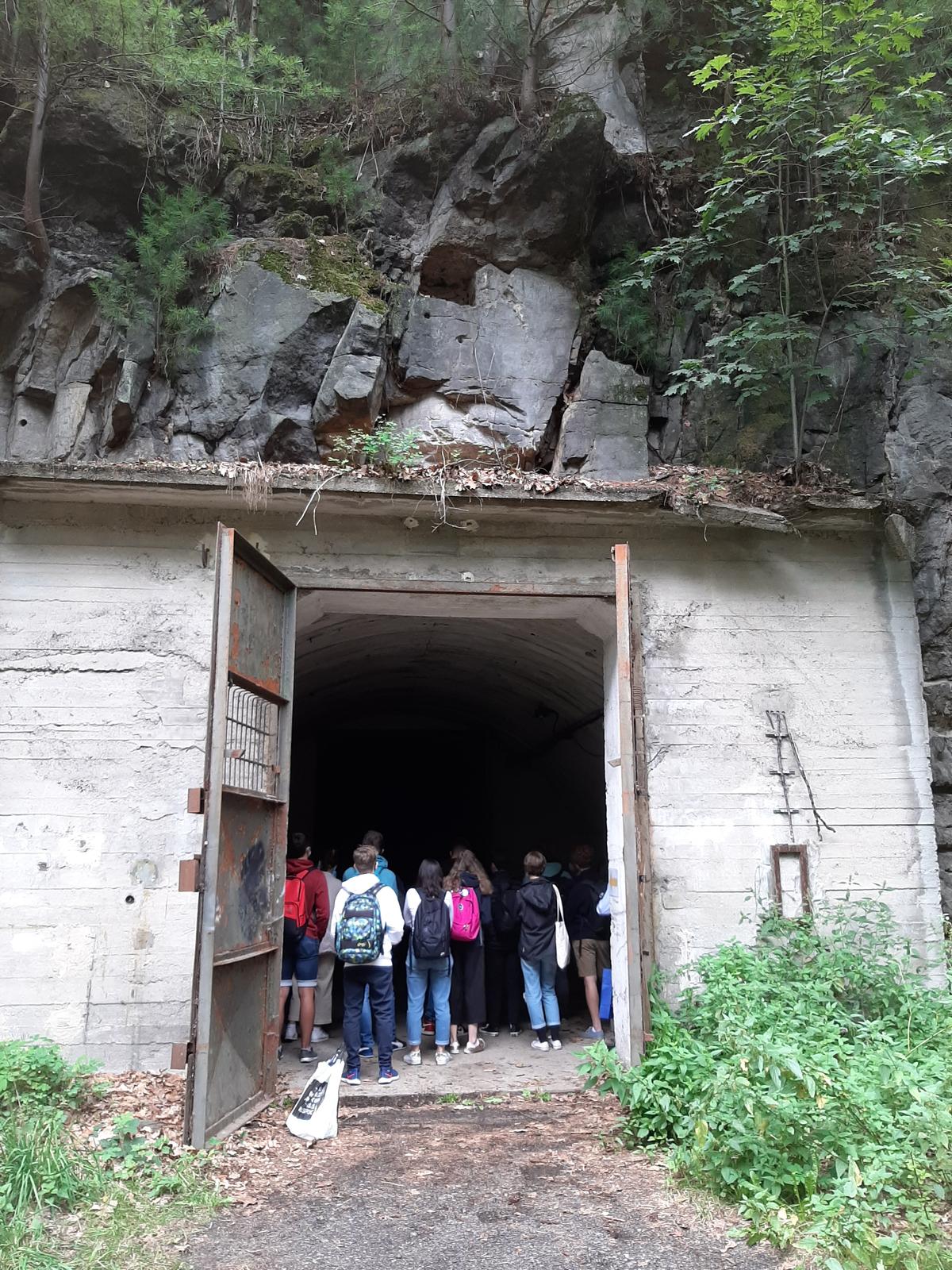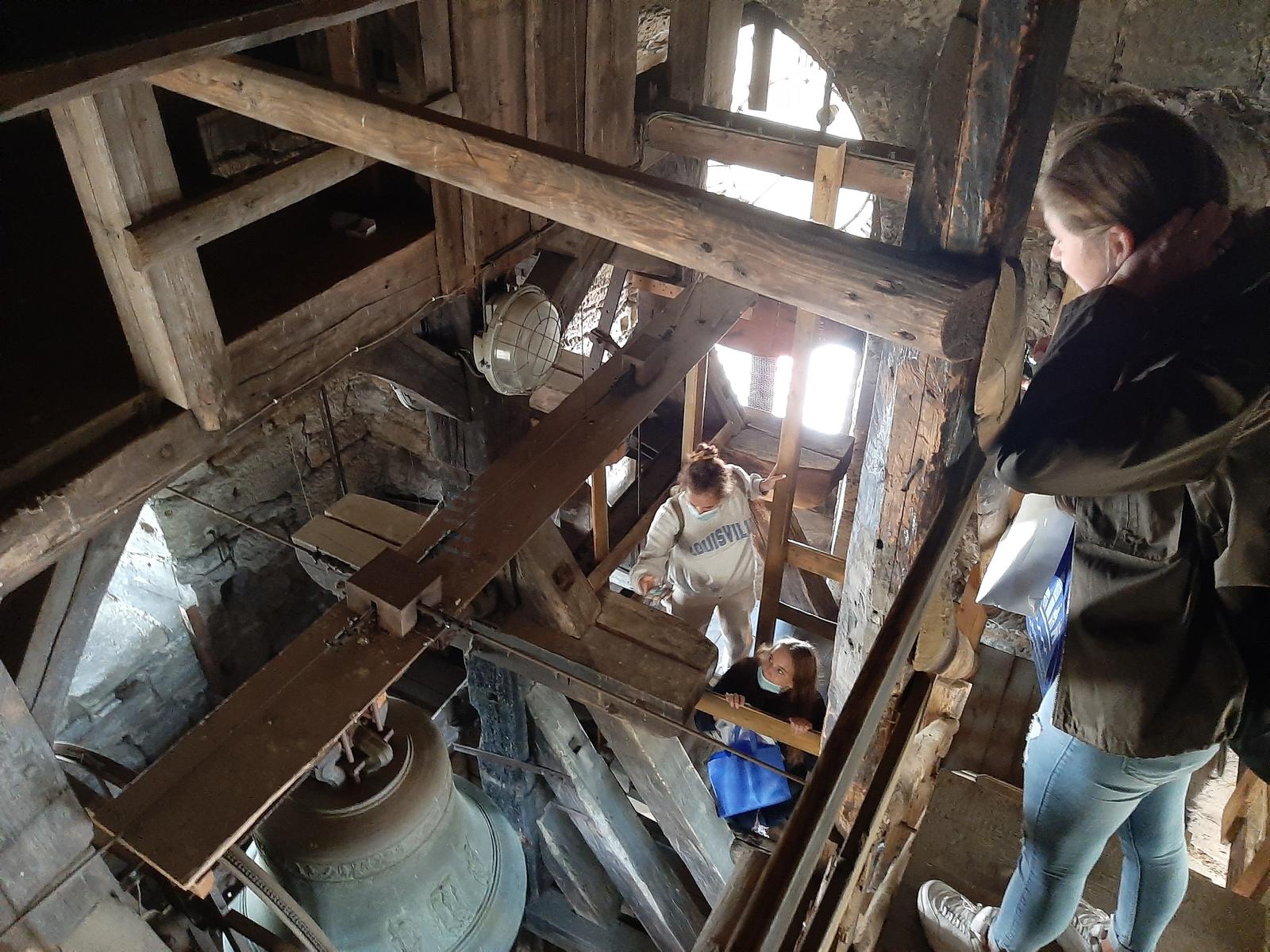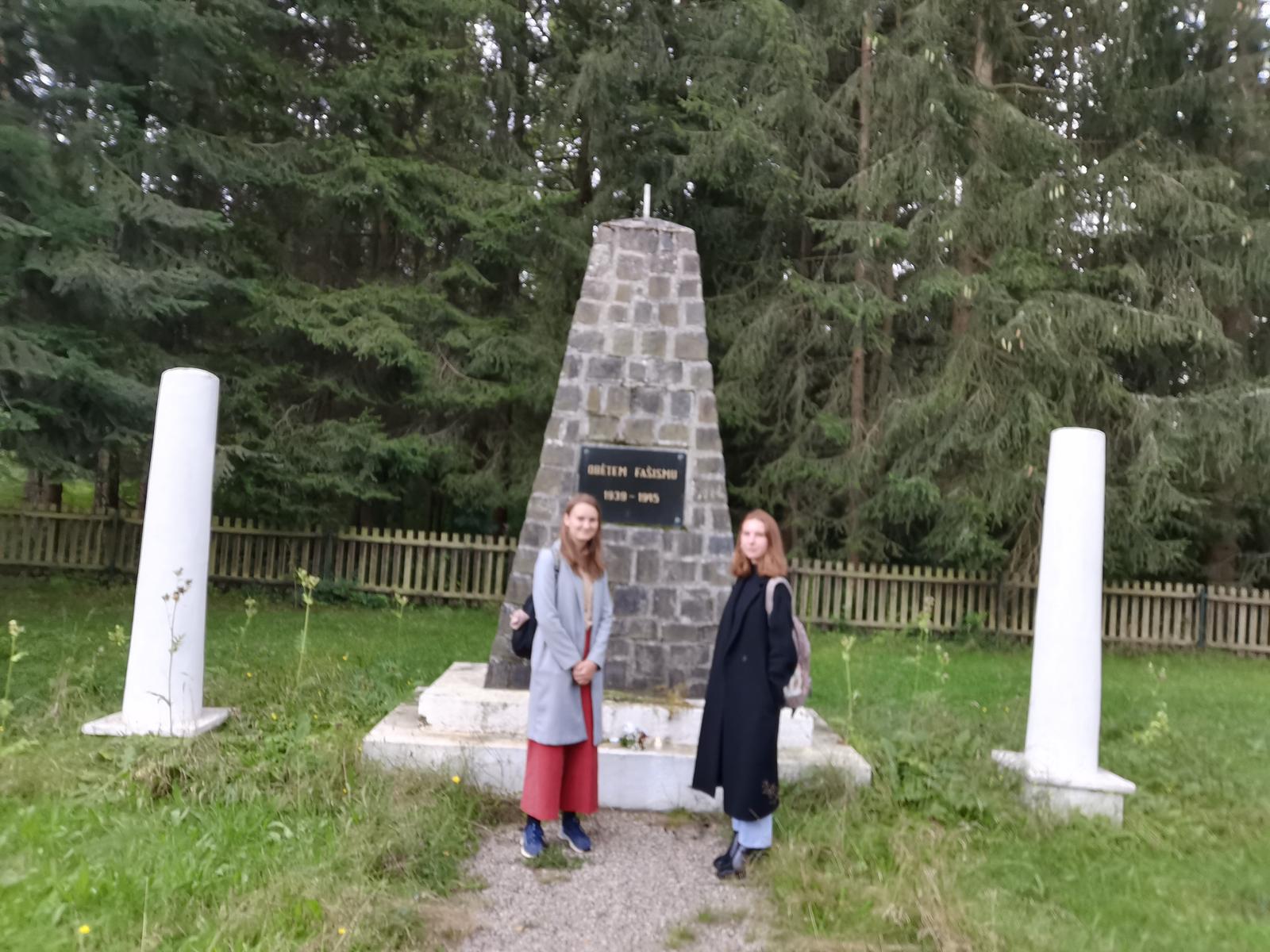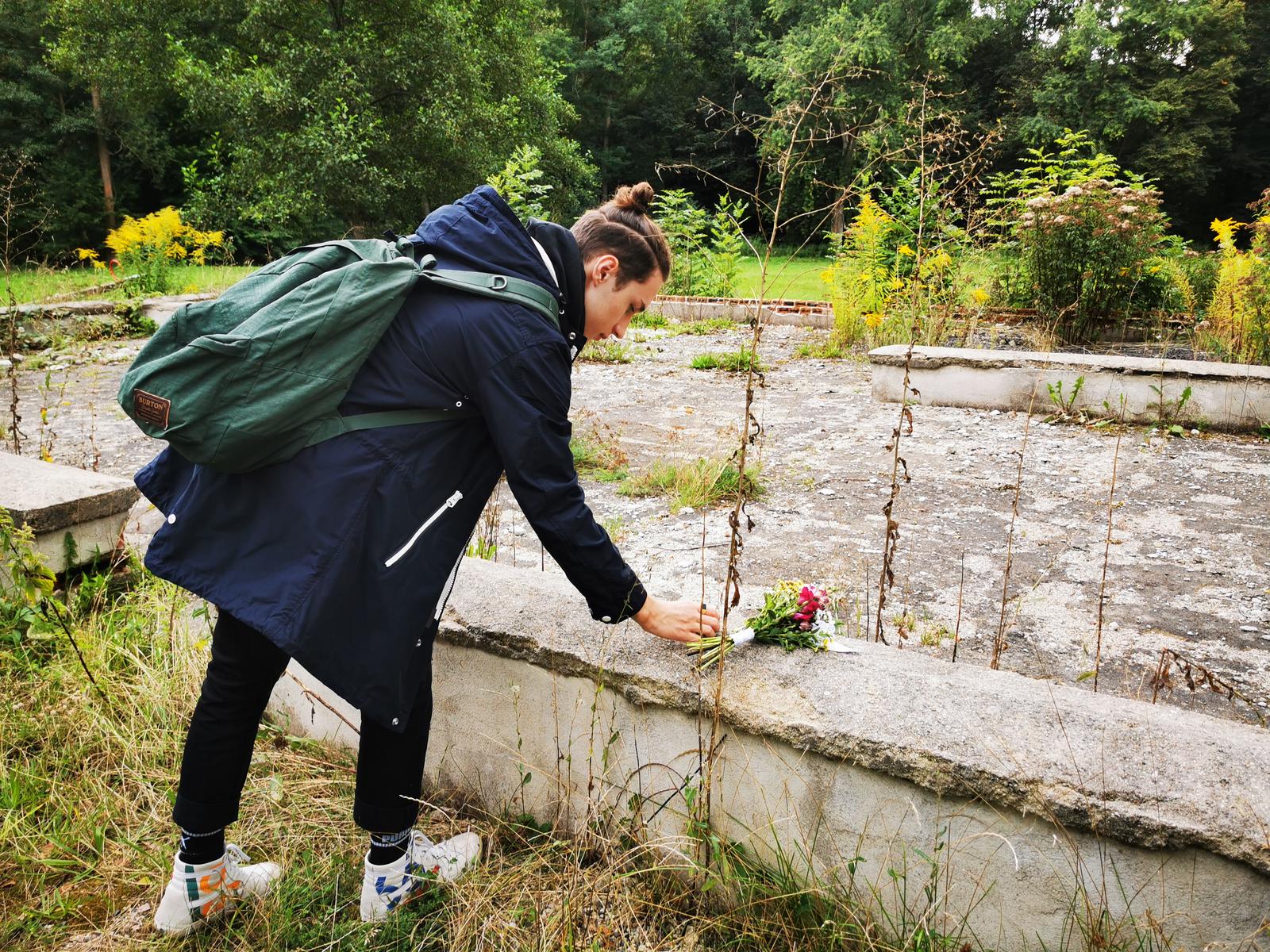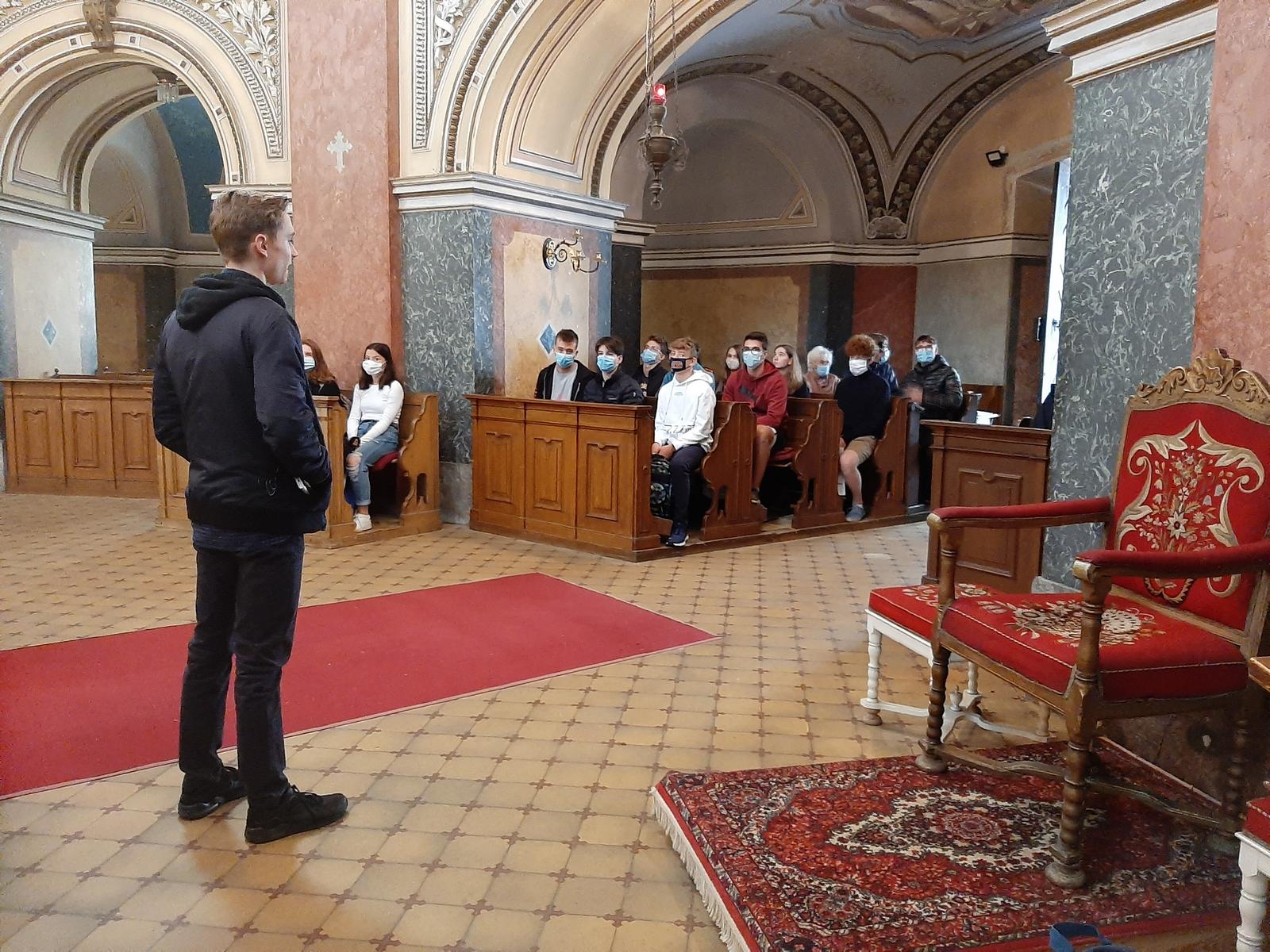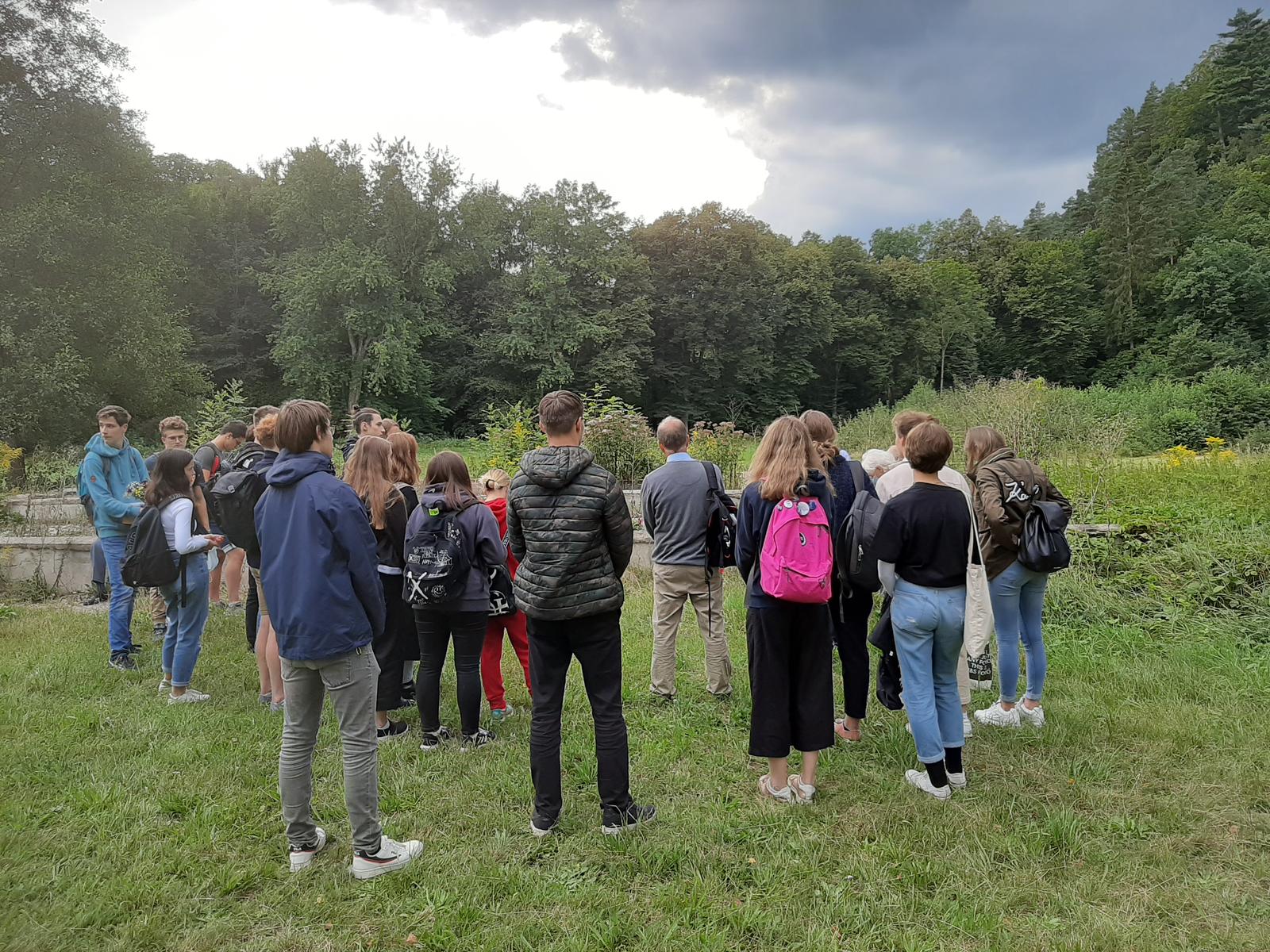Trips/Výlety
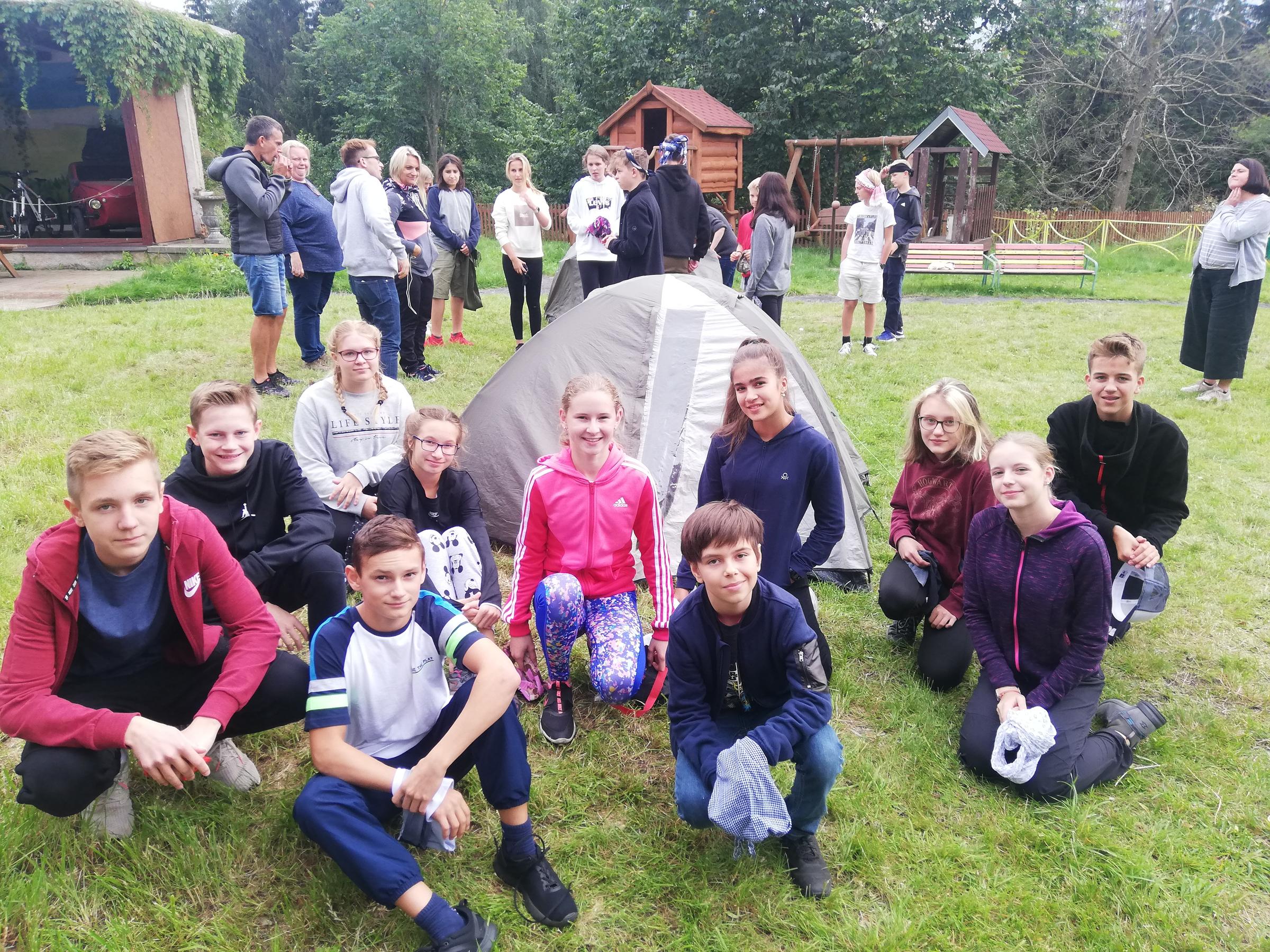
Year 1 Induction Trip Report/
Zpráva o výletu 1. ročníku
Most of our start of year trips were unfortunately cancelled this year due to Covid, however, our new year 1s were delighted that their trip still went ahead. It was an excellent opportunity for our students to get to know each other and it certainly helped make the process of joining a new school somewhat less daunting.
We stayed in a Penzion in the middle of the beautiful Czech-Switzerland countryside near Česká Kamenice. On the first two days we did lots of team building activities, went for a walk to Tolstejn, and even met the Year 6 mentors virtually through online videos. On the final day we went to Hřensko and did a beautiful hike and boat trip through the gorges.
It was the perfect opportunity for new students to meet their tutors and start the process of building up that important relationship. We arrived back in Prague on Friday afternoon of week 1, just in time for a relaxing weekend before the first real week of lessons!
Mr Bleaks, Trip Leader
Většina našich letošních výletů na začátku školního roku byla bohužel zrušena kvůli situaci ohledně pandemie Covid-19, nicméně naši noví studenti byli potěšeni, že jejich výlet se uskutečnit mohl. Pro naše studenty to byla vynikající příležitost navzájem se poznat a rozhodně to pomohlo tomu, aby byl proces vstupu do nové školy o něco méně stresující.
Bydleli jsme v penzionu uprostřed krásné přírody v regionu Českého Švýcarska poblíž České Kamenice. První dva dny jsme podnikli spoustu teambuildingových aktivit, vydali se na procházku do Tolštejna a dokonce jsme se virtuálně setkali s mentory 6. ročníku prostřednictvím online videí. Poslední den jsme šli do Hřenska a udělali si krásnou túru a výlet lodí roklinami.
Pro nové studenty to byla dokonalá příležitost setkat se se svými učiteli a zahájit proces budování tohoto důležitého vztahu. V pátek odpoledne jsme přijeli zpět do Prahy, právě včas na relaxační víkend před prvním týdnem výuky!
Glenn Bleaks, vedoucí výletu
Induction trip / Adaptační výlet
I would like to tell you about our Induction trip. The trip was held from 2nd September to the 4th September and took place at Rybniště. We stayed in the pension called Relax.
The first day after the arrival we had a tasty lunch. After lunch we had some free time and then we started doing our first "team-building activities".
One of the activities was that we had to follow the sounds and get into the circle which was made of rope. It was fun because we couldn't see.
The second day, in the morning ,we watched videos from a Year 6 student Viktor who was talking about Ventus and about making new friends during his first year at the ECP. It was inspiring to hear that. In the afternoon we went for a 12 kilometre long trip to Tolštejn castle. There was a breathtaking view of nature. We were lucky - the September weather was mostly sunny with some short showers. In the evening we had a BBQ.
The last day of our Induction trip was a bit adventurous because we spent some time on boats on the river Kamenice. I really liked the valley with rocks which surrounded us.
To conclude - I am really happy that I had a chance to go on this trip despite the covid situation and thanks to all the taken measures. I could get to know my new classmates and tutors. I hope this wasn't our last ECP trip.
Petr Kroupa, Year 1 Ventus, (experience book reflection)
Rád bych vám řekl o našem seznamovacím výletu. Výlet se konal od 2. do 4. září v Rybništi. Bydleli jsme v penzionu Relax.
První den po příjezdu jsme měli chutný oběd. Po obědě jsme měli trochu volného času a pak jsme začali dělat naše první „teambuildingové aktivity“.
Jednou z aktivit bylo, že jsme museli sledovat zvuky a dostat se do kruhu, který byl vyroben z lana. Byla to zábava, protože jsme nic neviděli.
Druhý den ráno jsme sledovali videa od studenta 6. ročníku Viktora, který hovořil o koleji Ventus a o tom, jak on získával nové přátele během svého prvního roku v ECP. Bylo inspirativní ho poslouchat. Odpoledne jsme šli na výlet, dlouhý 12 kilometrů, až na hrad Tolštejn. Byl tam úchvatný pohled na přírodu. Měli jsme štěstí, protože zářijové počasí bylo většinou slunečné, jen s pár krátkými přeháňkami. Večer jsme měli grilování.
Poslední den našeho adaptačního výletu byl celkem dobrodružný, protože jsme strávili nějaký čas na lodích na řece Kamenici. Moc se mi líbilo údolí se skalami, které nás obklopovalo.
Závěrem bych rád řekl, že jsem opravdu rád, že jsem měl příležitost jet na tento výlet navzdory situaci kolem pandemie Covid, díky všem přijatým opatřením. Mohl jsem lépe poznat své nové spolužáky a učitele. Doufám, že to nebyl náš poslední výlet během studia v ECP.
Petr Kroupa, 1. ročník, kolej Ventus
Year 4 Trip to Sudetenland/
Výlet 4. ročníku do Sudet
The German Sudetenland trip - seeing events from different perspectives
The unfortunate essence of history is that it is innately subjective and biased; it is written by the winners, the oppressors, the tyrants, rather than the victims, whose voices should actually be heard. That is precisely why it is our responsibility, as not just students but more broadly as a generation which is looking to do better than our predecessors, to listen to those unheard voices.
In the first week of school, a group of a few fellow Y4 students and I got to do just that, as we embarked on a trip to the Sudetenlands, in order to speak to a group of senior citizens about their experiences during the expulsion of ethnic Germans from Czech lands after WWII. This group of people became scapegoats to the most extreme degree after the fall of the Nazis and this period of history is often glossed over, as some people feel the Germans ‘deserved’ it after the crimes they had committed in WWII. Of course, the community in the Sudetenlands had little to do with it, yet they were forced to vacate the area in a matter of hours, leave their homes, were transported in barbaric conditions and dropped off in Germany, where they were treated as strangers. Some of them even had to live in work camps for a while - this included children.
As we sat in a circle and listened to the group of elders, it was hard to imagine the horrors they went through and even harder to believe how unknown their fates are to the public.
The day was completed with a tour of the former work camp Rabštejn, as well as a minute of silence at the memorial. We lit candles and commemorated the innocent lives lost.
Overall, the trip undoubtedly opened our eyes to the injustices suffered by ethnic Germans in the Sudetenlands and it highlighted how important it is for older and younger generations to gather and share experiences, stories and insights.
Emma Horáková, Year 4
Výlet do Sudet - pohled na události z jiné perspektivy
Nešťastnou podstatou historie je, že je přirozeně subjektivní a zaujatá. Píšou ji vítězové, utlačovatelé, tyrani, spíše než oběti, jejichž hlasy by měly být skutečně slyšet. Právě proto je naše zodpovědnost, nejen jako studentů, ale obecněji jako naší generace, která se snaží dělat věci lépe než naši předchůdci, abychom poslouchali i ty nevyslyšené hlasy.
A to bylo náplní našeho výletu do Sudet během prvního školního týdne. Společně se skupinou spolužáků ze 4. ročníku jsme si tam promluvili se seniory o jejich zkušenostech s vyhoštěním etnických Němců z českých zemí po druhé světové válce. Tato skupina lidí se po pádu nacistů stala největšími obětními beránky. Toto období historie je často přehlíženo, protože někteří lidé mají pocit, že si to Němci „zasloužili“ po zločinech, které spáchali za druhé světové války. Komunita v Sudetech s tím samozřejmě neměla mnoho společného, přesto byli nuceni odejít z oblasti během několika hodin, opustit své domovy, byli přepraveni v barbarských podmínkách a vysazeni v Německu, kde s nimi bylo zacházeno jako s cizinci. Někteří z nich dokonce museli nějakou dobu žít v pracovních táborech, což zahrnovalo i děti.
Když jsme usazeni v kroužku těmto lidem naslouchali, bylo těžké si představit hrůzy, kterými si prošli, a ještě těžší uvěřit, jak neznámé jsou jejich osudy pro veřejnost.
Den jsme zakončili prohlídkou bývalého pracovního tábora Rabštejn a minutou ticha u památníku. Zapálili jsme svíčky a připomněli si nevinné ztracené životy.
Celkově tento výlet nepochybně otevřel naše oči nespravedlnostem, které utrpěli etničtí Němci v Sudetech, a připomenul, jak je důležité, aby se starší a mladší generace setkávaly a sdílely své zkušenosti, příběhy a postřehy.
Emma Horáková, 4. ročník
A Sudeten trip
Focusing on the differences between each nation’s interpretation of the history of the Sudeten area and the impact of the trip on understanding this matter by the ECP students.
To be completely honest, when I heard about the opportunity to go on a school trip to Česká Kamenice to discuss the difficult history of the Sudeten area with once local Germans, I signed up just because of the thought of all the fun I was going to have with my classmates. I was not really interested in talking about history. And why would I be? I already knew it well and there was hardly something new they could teach me, right?
As it turned out, I was way off. Since my family has a cottage right in the neighbouring village, I have been coming here to spend my summers in this forgotten place since my early childhood. I have a friend whose grandfather dedicated a significant part of his life to studying the history of the Sudetenland and collecting anything linked to the village which could shed more light on its past. Every time we would come over for a campfire, he would spend hours telling us stories rooted in the history of this place.
So as I approached the Germans who were so kind to come from the four corners of Germany all the way to the small square in Česká Kamenice, I was thinking, what a nice opportunity to practise my German. So without hesitating, I started a conversation with an older woman. As we admired the beauty of the local monastery her German husband who was born in Brno joined us as well as their two grandsons from Bavaria, who are roughly my age. My German is clumsy, but we understood each other.
What followed, absolutely changed me. The old lady started to share her childhood stories with me. How they were banished from their homes and the horrible experiences she had to go through when she ended up in a work camp. But this was just an appetiser compared to what I was about to be served with in the town hall. After all, it was a ruthless time, and unfortunately, inequity was all over the place.
It was the lecture in the town hall from a Sudeten German who spoke fluent Czech that made me question the history I had been taught, which I had had no reason to dispute before. For about an hour he was sharing his recollections of what life was like in the Sudetenland, but not just the memories of the Czech German coexistence but also the political climate. This was a big deal for me as many of the things he said did not concur with what I considered to be the truth. In some cases, it felt like pure contradiction.
I came out of that talk quite angry and not really sure what to think. How could they lie to us like that? Or, to be more precise, how could they keep it from us? Before I came to ECP I attended a very good Czech grammar school. We covered this topic in great depth. But now I know we were only told one half of the story. A story that portrayed the Germans as people who deserved expulsion, at least, but were peacefully displaced instead.
It's often said the history is written by the victors, but any version of history, other than the truth is just going to create more conflict and misunderstanding. This trip reminded me just how important it is to be critical, open-minded and willing to challenge our current understanding. Since then I have started looking into the story of the Sudetenland in my home area, South Bohemia, a place once also inhabited by both Czechs and Germans. And to my surprise, I found people, museums and organizations working to correct the interpretation of history in this country and saying what actually happened. This gave me hope, hope that the next generation won’t be afraid to face the truth.
Kryštof Folbrecht, Year 4
Výlet do Sudet
Výlet se zaměřil na rozdíly mezi interpretacemi dějin sudetské oblasti různými národy a na porozumění této záležitosti ze strany studentů ECP.
Upřímně řečeno, když jsem se dozvěděl o možnosti jet na školní výlet do České Kamenice diskutovat o obtížné historii sudetské oblasti s místními Němci, přihlásil jsem se hlavně kvůli tomu, abych si užil zábavu se svými spolužáky. Neměl jsem až tak velký zájem probírat historii. A proč bych měl? Myslel jsem si, že už jsem to vše dobře znal a stěží by mě tedy mohli naučit něco nového.
Jak se však ukázalo, byl jsem daleko od pravdy. Protože moje rodina má chalupu přímo v sousední vesnici, trávím každé léto na tomto zapomenutém místě už od raného dětství. Mám kamaráda, jehož dědeček věnoval významnou část svého života studiu historie Sudet a sbírání všeho, co souvisí s jeho vesnicí, což by mohlo vrhnout více světla na její minulost. Pokaždé, když jsme spolu byli u táboráku, hodiny nám vyprávěl příběhy pocházející z historie tohoto místa.
Když jsme se tedy sešli s Němci, kteří byli tak laskaví, že se dostavili ze čtyř rohů Německa až na malé náměstí v České Kamenici, říkal jsem si, že je to příjemná příležitost procvičit si němčinu. A tak jsem bez váhání zahájil rozhovor se starší ženou ze skupiny. Když jsme obdivovali krásu místního kláštera, připojil se k nám i její německý manžel, který se narodil v Brně, a jejich dva vnuci z Bavorska, kteří byli zhruba v mém věku. Moje němčina je neobratná, ale porozuměli jsme si.
To, co následovalo, mě velmi ovlivnilo. Paní mi začala vyprávět příběhy z dětství; jak byli vykázáni ze svých domovů a jaké hrozné zážitky měla, když skončila v pracovním táboře. Ale to byl jen předkrm ve srovnání s tím, co jsem si poté vyslechl na radnici. Byla to nemilosrdná doba a nerovnost se bohužel objevovala všude.
Právě přednáška na radnici od sudetského Němce, který hovořil plynně česky, mě přiměla zpochybnit historii, kterou jsem se učil, a o které jsem předtím neměl důvod pochybovat. Tento pán asi hodinu sdílel své vzpomínky o tom, jaký byl život v Sudetech, ale nejen vzpomínky na česko-německé soužití, ale také na politické klima. To byl pro mě velký problém, protože mnoho věcí, které řekl, se neshodovalo s tím, co jsem považoval za pravdu. V některých případech jsem v tom nacházel i rozpor.
Po přednášce jsem vyšel docela naštvaný a nebyl jsem si jistý, co si mám myslet. Jak nám mohli takhle lhát? Nebo přesnější, jak nám tohle mohli zamlčet? Než jsem přišel na Anglické gymnázium, navštěvoval jsem velmi dobré české gymnázium. Toto téma jsme probírali do velké hloubky. Ale teď vím, že nám byla řečena jen polovina příběhu. Byla to část, která vykreslila Němce jako lidi, kteří si zasloužili vyhoštění, které však probíhalo mírumilovně.
Často se říká, že historii píšou vítězové, ale jakákoli verze historie, kromě pravdy, způsobí další konflikty a nedorozumění. Tento výlet mi připomněl, jak důležité je být kritický, otevřený a ochotný zpochybnit naše současné chápání událostí. Po výletu jsem se začal zabývat příběhem Sudet v mé domovské oblasti, v jižních Čechách, v místě, které kdysi také obývali Češi i Němci. A k mému překvapení jsem zjistil, že lidé, muzea a organizace pracují na úpravách výkladu historie v naší zemi a říkají, co se vlastně stalo. To mi dalo naději, že příští generace se nebudou bát čelit pravdě.
Kryštof Folbrecht, 4. ročník
Hidden history
History is something that connects all of us together. However, it is also something that makes us unique as each of us has their own history, our own story.
During the first week of school a few Year 4 students and I went on a trip to the Sudetenland with the aim of visiting a group of elders that had experienced at first hand the expulsion of ethnic Germans from the former Czechoslovakia after WW2. We met them in Česká Kamenice, which is where they lived before the expulsion and we were able to ask them about their stories. The elders brought us copies of the original posters, which announced how much time they had before they had to leave and what they could take with them. During the Q&A session, the atmosphere was serious as we were all interested in what they had to share with us. People may not even know what the Germans went through in the Sudetenland at that time. However, history is written by the winners and not the losers. The thing that stuck with me the most was them not being angry at Czechs, who were their friends when the Germans lived there, for expelling them as they believe that “an eye for an eye” leaves the world blind. After that, we went all together to a work camp near Česká Kamenice called Rabštejn.
Many people may not be aware of this camp. However, it was the place where a lot of aeroplane parts were made during WW2. Our guide in Rabštejn did not speak English. Therefore, I had the honour of translating the history of Rabštejn to the group. We were told about what happened in the camp and how it was used and we could only imagine the horrors that the prisoners went through. The last part of our trip was a quick excursion into the Rabštejn tunnels, where most of the prisoners were working. The tunnels were extremely long and we saw marks from the huge machinery which was placed there. During our way back to the bus we stopped at a memorial, which was dedicated to the victims of work and concentration camps during WW2. Of course, we held a minute’s silence and we lit a candle to commemorate the fallen victims.
People may fear that their history will not be seen as others may try to hide it away. However, I can assure you all that the people we met on this trip and the people that we heard about do not have to be scared anymore as they and their stories will be remembered.
Tomáš Vladyka, Year 4
Skrytá historie
Historie je něco, co nás všechny spojuje. Je to však také něco, co nás dělá jedinečnými, protože každý z nás má svou vlastní historii, svůj vlastní příběh.
Během prvního školního týdne jsme s několika studenty 4. ročníku vyrazili na výlet do Sudet s cílem navštívit skupinu seniorů, kteří na vlastní kůži zažili vyhoštění etnických Němců z bývalého Československa po druhé světové válce. Setkali jsme se s nimi v České Kamenici, kde žili před vyhoštěním, a mohli jsme se jich zeptat na jejich příběhy. Pamětníci nám přinesli kopie původních plakátů, které oznamovaly, kolik času jim zbývá na odchod a co si mohou vzít s sebou. Během schůzky panovala vážná atmosféra, protože nás všechny zajímalo, o co se s námi mohou podělit. Lidé možná ani nevědí, čím si v té době Němci v Sudetech prošli. Dějiny totiž píší vítězové, nikoli poražení. Nejvíce mě zaujalo to, že pamětníci se nehněvají na Čechy, se kterými se přátelili, když v Sudetech pobývali, za to, že byli vyhnáni, protože věří, že princip „oko za oko“ svět oslepuje. Poté jsme šli všichni společně na místo pracovního tábora Rabštejn poblíž České Kamenice. Mnozí nemusí ani vědět, že tento tábor existuje. Bylo to však místo, kde se během 2. světové války vyrábělo mnoho dílů letadel. Náš průvodce v Rabštejně neuměl anglicky. Proto jsem měl tu čest přeložit historii naší skupině. Dozvěděli jsme se, co se v táboře událo a jak vše probíhalo a mohli jsme si jen představovat hrůzy, které tam vězni zažili. Poslední částí naší prohlídky byla rychlá exkurze do rabštejnských tunelů, kde pracovala většina vězňů. Tunely byly extrémně dlouhé a viděli jsme zbytky strojů, které tam byly umístěny. Během cesty zpět k autobusu jsme se zastavili u památníku, který byl věnován obětem prací a koncentračních táborů během 2.světové války. Samozřejmě jsme drželi minutu ticha a zapálili jsme svíčku na památku padlých obětí.
Lidé se mohou obávat, že jejich historie nebude spatřena, protože ostatní se ji mohou pokusit skrýt. Mohu vás však všechny ujistit, že lidé, se kterými jsme se na této cestě setkali, a lidé, o kterých jsme slyšeli, se už nemusí bát, protože si budeme pamatovat je i jejich příběhy.
Tomáš Vladyka, 4. ročník
What happened that day at Česká Kamenice
August 27th was the day that 20 lucky students were chosen to attend an adventurous journey to Česká Kamenice. At that time the students didn’t know what was ahead of them and how the trip would change their lives...forever.
There they were on the 2nd September, early in the morning in front of the school building. Excited, a little cold and somewhat anxious, waiting for it to begin. The only thing stopping them from getting on the bus were the two people, who were late.
Finally after Mr. Gwilt and Mr. Foster had ticked all the names on the attendance list, the trip began. Afterwards they all took their seats on the bus, safely distancing from each other, the 2 hour journey to the North started. Some students slept, some stayed up and listened to music, but when the bus stopped at the gas station one thing was for sure, they all went to get a hotdog. Stomachs full, mustard still on their lips, an hour later we arrive in the town Böhmisch Kamnitz.
There on the square the wise elders stood, ready to pass their memories and experiences onto the next generation. The students greeted them with a gift from The English College and they exchanged smiles and a few sentences to get to know each other. Some students were more curious and talkative than others. They had the chance to get to know the town and the Germans on a tour provided by its citizens.
The tour ended in the town hall where students engaged in conversation with the city Mayor, starting to dig into the history of the town.
Then the moment they were all waiting for, when the Germans would share a piece of their lives, a piece of history. The Y4 students sat and listened to the heartbreaking stories that happened in the past at that place.
Some would think that that would be the end of the story, but the chosen 20 went and dug deeper into history, they went to explore the former Rabštejn work camp. The tour guide and the elders helped us imagine what it was like to be at such a place a few decades ago.
To commemorate the victims of the concentration camp, the group lit candles, placed flowers and held a minute of silence at the Rabštejn memorial.
On the way back to the bus, nervous about the time, students and teachers were thinking about what happened that day, how their respect and understanding of these past times grew and how they will remember this unique experience.
With a cheerful goodbye to the elderly and the realisation of how lucky we were to live in 2020, the mood got better. The Year 4s after an eventful day took their seats in the bus, ready to go home. But that didn't go as planned and we had to call a tow truck:)... that's a different story.
Estella Marlowe, Year 4
Co se ten den stalo v České Kamenici
27. srpna bylo vybráno 20 šťastných studentů na dobrodružnou cestu do České Kamenice. V té době studenti nevěděli, co je čeká a jak jim cesta změní život ... navždy.
Sraz byl 2. září brzy ráno před budovou školy. Byli jsme vzrušení, trochu prochladlí a poněkud nervózní. Jediná věc, která nám bránila nastoupit do autobusu, bylo zpoždění dvou účastníků. Když pak pan Gwilt a pan Foster zaškrtli všechna jména na prezenční listině, cesta mohla začít.
Poté se všichni usadili do autobusu, s bezpečnými rozestupy, a začala dvouhodinová cesta na sever. Někteří studenti spali, jiní zůstali vzhůru a poslouchali hudbu, ale když autobus zastavil u benzinové pumpy, jedna věc byla jistá, všichni si dali párek v rohlíku.
S plnými žaludky a hořčicí na rtech jsme o hodinu později dorazili do města Böhmisch Amnitz.
Na náměstí stáli moudří pamětníci, připraveni předat své vzpomínky a zkušenosti další generaci. Přivítali jsme je dárkem od Anglického gymnázia a vyměnili si úsměvy a pár vět, abychom se navzájem poznali. Někteří studenti byli více zvědaví a upovídaní než ostatní. Měli jsme možnost poznat město a německé hosty na prohlídce města zajištěné místními občany.
Prohlídka skončila na radnici, kde se studenti zapojili do rozhovoru s primátorem města a dozvěděli se více o historii. Pak nastal okamžik, na který všichni čekali. Němečtí pamětníci se podělili o kus svého života, o kus historie. Studenti 4. ročníku poslouchali srdcervoucí příběhy, které se tam v minulosti staly.
Mohlo by se zdát, že to bude konec příběhu, ale 20 vyvolených se podívalo ještě hlouběji do dějin a prozkoumalo bývalý rabštejnský pracovní tábor. Průvodce a senioři nám pomohli představit si, jaké to na tomto místě bylo před několika desítkami let.
Na památku obětí koncentračního tábora skupina zapálila svíčky, položila květiny a držela minutu ticha u památníku Rabštejn.
Na zpáteční cestě do autobusu, nervózní z doby minulé, studenti i učitelé přemýšleli o tom, co se toho dne stalo, jak rostla jejich úcta a pochopení těchto minulých časů a jak si budou pamatovat tento jedinečný zážitek.
Díky veselému rozloučení s pamětníky a vědomí toho, jaké štěstí máme, že žijeme v roce 2020, se naše nálada zlepšila. Studenti 4. ročníku se po dni plném zážitků usadili v autobuse a byli připraven jet domů. Ale nešlo to podle plánu a museli jsme volat odtahovku:)…, ale to už je jiný příběh.
Estella Marlowe, 4. ročník
